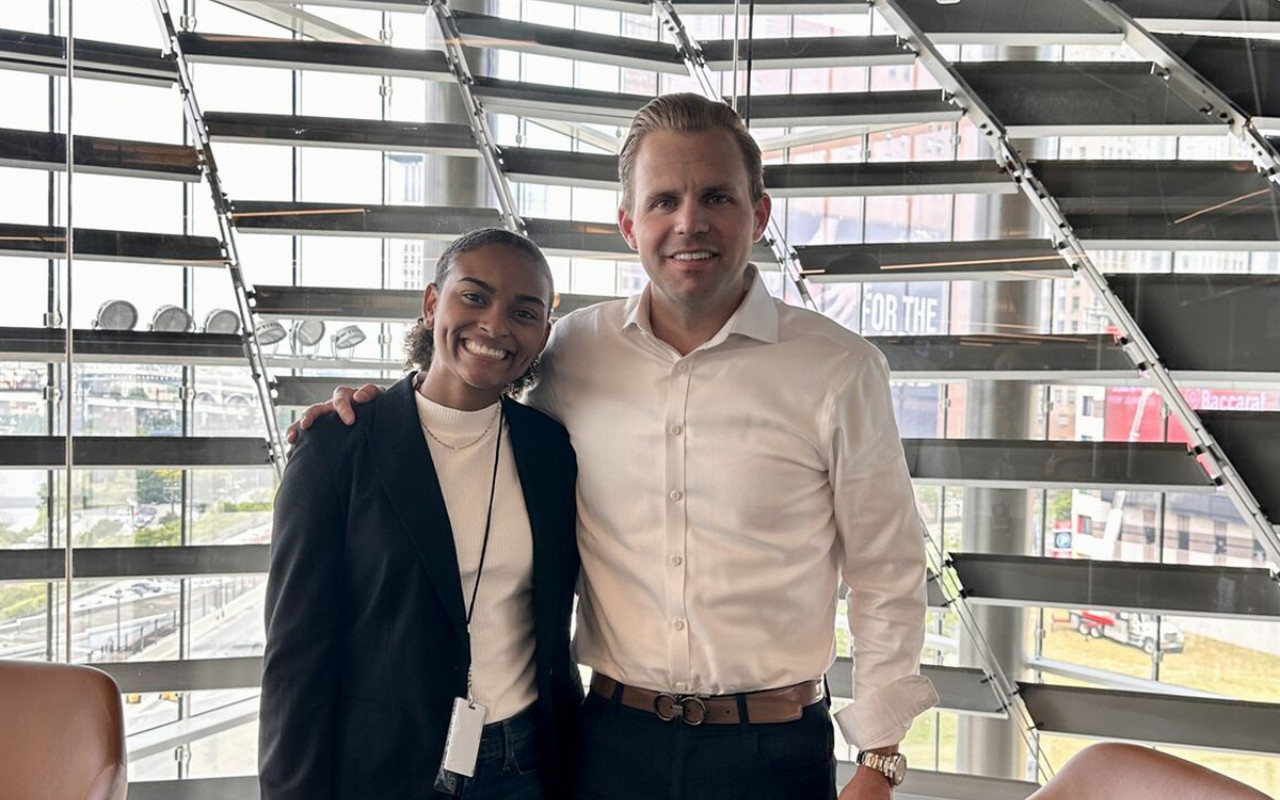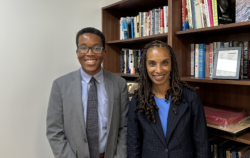
Ubben Posse Fellow Interviews: Nic Barlage
The Jeff Ubben Posse Fellows Program awards five exceptional Posse Scholars $10,000 each and the chance to spend 4-6 weeks during the summer shadowing and learning from a major industry leader. The interview below with Joe Nic Barlage, CEO of the Cleveland Cavaliers, Rocket Mortgage Field House and Rock Entertainment Group, was conducted by Posse Scholar Mayah Bourne, now in her junior year at the George Washington University, who worked with Nic Barlage as a 2023 Jeff Ubben Posse Fellow. The conversation has been edited and condensed.
MAYAH: Let’s start with who you were as a kid. How were you raised and did your upbringing influence your leadership?
NIC BARLAGE: I think everything we do and who we are in some way reflects how we’ve been raised. I grew up in a very lower-middle class family, a great family, great parents. We played sports, we were good kids, but we could never afford to go to games or do things that we do now. My childhood was built on a really strong work ethic, and I was the first of my family on my dad’s side to graduate college. What’s been engraved in me over the years is the importance of work ethic and staying positive, a kind of can-do spirit if you will. My mom used to always say “if you can dream it, you can accomplish it,” and that was a big piece of what got me to my position.
It sounds like you had a great support system that encouraged you to shoot for the stars. Did you have goals set to get you where you are now from a young age?
Not growing up, but as soon as I graduated, I wrote down thirteen goals and taped it to my bathroom mirror to look at it every single day. The thirteenth goal was, “I want to run a team someday.” I was very clear about that. That was the first time in my life that I wrote down goals for professional and personal development, and it was really important to me and became my north star as I started my career. It encouraged me to look beyond the four-year cycle of education and think about growth over a long period of time.
Those goals that you wrote down, what inspired you to start doing that?
It was really hard for me to get a job in sports. My senior year I applied to 172 jobs and got 172 “nos”. I applied to another thirty before I got my first job in the NBA.
I had jobs in minor leagues sports, but nothing physically in the NBA. My point of entry was really difficult. My whole philosophy has always been “if the door of opportunity cracks open, let’s blow the hinges off of it” because I want to make sure everyone knows that I belong and that I can do this. When I started my first job in the NBA as an entry-level ticket salesperson, that was when I was hyper-focused on making the most of it.
Would you say there were certain choices or characteristics that enabled you to be in the position you are now coming from entry-level sales?
100 percent. Every stop along the way spurred a development personally and professionally that has helped me get to this place. The thing that was always really important to me was trying to observationally learn from every kind of source of stimulation I received. So, if I got a “no” from a sales perspective, I would always go back and say, “what could I have done better there”. If I got promoted, I would do the same thing and reflect. I would take all that stimulation and try to develop my own style and approach of leadership. For me, since day one, it has been about being a sponge to develop a more well-rounded approach towards things.
You stated there were many stops along the way to get to where you are. Were there any speed bumps that you faced on the journey?
Of course. Whenever I look back on my career, I think adversity has been the greatest opportunity for me. It has been that point in time where I’ve had the greatest rate of development.
Man, there’s more than a few moments though – like when I was trying to get into the NBA. When I was in Charlotte, the Hornets were probably the hardest sell in the NBA. You had a team the city didn’t want, an arena the city didn’t want, and unfortunately a fair share of racial undertones with the Hornets having one of the first Black owners. You put all those things together, and it was a very hard situation.
However, I learned how to sell through the greatest degrees of difficulty, and I developed an approach that assisted my transition to Cleveland. We have an amazing owner, a great team, and passionate fanbase, but suddenly Lebron leaves and everyone was looking like the sky was falling. For me though, I had faced way worse in Charlotte and those adversities helped me see the best in the situation and turn it into catalytic growth. I think we should embrace those moments. I have a saying, “look at things in life for the opportunity that it creates, not the challenge that it presents”. If you take that disposition towards things, it makes you look at things like your glass is half full.
It seems like you’re seeking discomfort in a way because it pushes you to grow and be better. Your success has come from not being afraid of challenges.
Switching to a business side of things, what type of qualities do you look for in the team members you hire here?
First: hire the right person. Hire a good human being. Being around good human beings is contagious. How we distill that out is by looking for someone who is innately positive, we look for someone who is willing to say ‘“yes” before “no”’ which is one of our isms here. The second thing is the ability to work hard. Great things come from hard work. Next, you have to be open to learning and growing, especially with the world evolving so fast. Finally, having passion for what you do is essential. For me, I became very passionate about selling and then managing and leading, and now running a business. Like I’m really passionate about it - I love it with all my being. I think if you have that passion, it allows you to then be more positive and work harder.
Wrapping up, what do you think makes a strong and inspiring leader?
You need some practice at the plate. The more you hit the ball, the better you’ll get. I believe you need to be selfless, a good communicator, authentic and generous with your time. You lead the group, but you manage the individual. You have to be able to chameleon your approach and find what works best for your team. If you’re really in leadership for the right reasons, you’re in it for everybody else, not for yourself.

